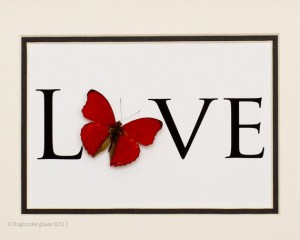If Valentine and cupid wrote a book on love, I wonder how they would describe love.
When we talk about love, we hear how exciting it can be, how fun, how scary, how much it lifts us, how much it hurts. We hear of the different types and degrees of love. Do we all experience love as the same thing in the same way?
Love can be expressed in emotional and physical terms. Love can be recognized by a “look”, a gesture, a fleeting sense of something in the flash of a moment. Every individual might experience it in their own way. Love is the generally considered as the most experienced of all the emotions. Love is the most written about, the most sung about and versed, the most speculated about and can be the most exploited. For all the things that love might be, it is scarcely taught. At large we are uneducated in love. We are in the most part conditioned to the experience of the perception of love within our families and social groups in our formative years. We do not formally learn about love in our general education curriculums.
Science sees love as a biochemical equation of neurotransmitters and brain recognition functions. Quantum physics sees it as an equation of energies and frequencies. Love may also be seen as the experience of a god or spiritual entity. Perhaps it is that love is indeed all these things.
Being conscious of what we attach to love can be one of the greatest paths to enjoying love. Consider for example love as a pure white beam of light with no other colours, no shapes etc. Let’s say as a child you were only told you were loved if you achieved a certain expectation of a parent; this is a condition that we place on love. If we grew up with parents fighting and arguing, swearing and cursing at each other but being told they love each other, this is another condition we put on love. The white light is becoming tainted. One might in this instance say that love hurts. Love never hurts anyone; it is only the attachments that we place on love.
 In practice, love issues often present as a factor in health problems as do relationships that might be breaking down or relationships that are going through change. In practice I use some simple tools to assist in what I describe as conscious love. To clarify; Intent for love is a greatly varied thing. Conscious love has some structure. It has some rules. It has some idea of the outcome.
In practice, love issues often present as a factor in health problems as do relationships that might be breaking down or relationships that are going through change. In practice I use some simple tools to assist in what I describe as conscious love. To clarify; Intent for love is a greatly varied thing. Conscious love has some structure. It has some rules. It has some idea of the outcome.
Stepping stones: These are the experiences of previous relationships. Be those relationships with your parents and extended family, friends, teachers, employers, lovers, whoever. What things felt good? What felt wrong or bad in the past? What behaviours have you come to recognise as appropriate or inappropriate? What personality types are you most comfortable with? Are there patterns from the past? An example might be that anyone you have found attractive in the past has turned out to be incredibly arrogant in relationship. If you choose to not have arrogance as a personality trait in a future partner, Take note of the previous common factors. Are there conditional behaviours that you slip into?
The wish list: I love the wish list. It has been pivotal in relationship outcomes for countless clients over the years. The wish list is simple. If you could have the perfect picture, what would you wish for to be in it? How might your partner look, feel, taste or smell etc. How would they dress? How would they speak with you? What might their profession be? Etc. Include anything. How you might live, what kind of home, what furniture? The list is potentially endless. Use your stepping stones to include or exclude features. The purpose of the wish list is so that you have a picture; in the hope that if you come across your picture, you may recognise it and it might be love!
Gut feeling: That inner voice. Perception. That “sense” or “feeling”. Probably the most important point!
Health: Both physical and emotional health is vitally important in the experience of sustainable enjoyable love. Good nutrition, healthy weight and regular exercise contribute to good mood and energy. There are many health issues that put a load on relationships and I find so many of these issues are efficiently dealt with in practice. Maintaining an open and positive perspective for decision making and positive choices is much easier when you feel well and vital. These factors lead to happier and more fulfilling loving relationships.
Routine: There s that old chestnut again! Routine is a key component to maintaining love. Have a café date weekly. Take a bath together. Partake in a pass time together. Share your passions. Take an interest in each others lives. Got the picture?!
Degrees of Adaptation: Consider a clock face. 12 is your truth in way of being, your innate desire, and your ideal choices. Each minute represents a degree that takes you away from that truth. The 10 past to quarter past 12 is approaching the tolerance point where love can be compromised. Degrees of adaptation is a powerful tool once learned in it s full concept.
Love is a part of all lives and as with all things in life, there is a lot to learn about love!
By John Burchell
Naturopath/Homeopath @ The Medical Sanctuary
